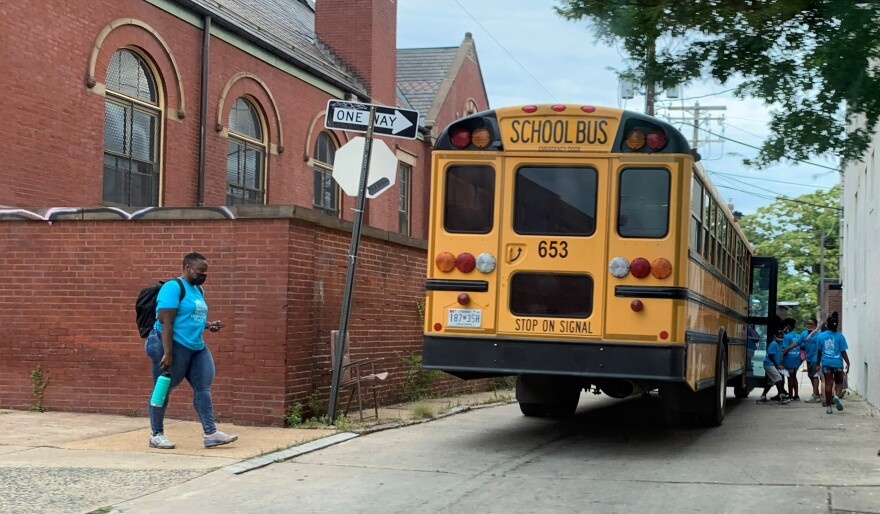Maryland students are falling behind their peers as test scores statewide lag behind the national average in math and reading, according to the most recent National Center for Education Statistics data. This is the first time data was released since the coronavirus pandemic forced schools to close and transition to virtual learning in March 2020. Math proficiency was at an all time low across all 50 states since the first assessment in 1990 but there was a decline in literacy skills too.
The National Assessment of Educational Progress, also known as the Nation’s Report card, measures fourth and eighth-grade students' math and reading achievement each school year.
In Maryland, only about 31% of fourth grade students were proficient in reading and math compared to 39% and 35% before the pandemic, respectively.
The results were more bleak for eighth grade students. Only 25% of students were proficient in math this year compared to 33% in 2019. Roughly 33% of students passed reading, down from 36% in 2019.
Since 2013, students' test scores have been steadily declining statewide. The Maryland State Department of Education declined comment for this story.
There was a significant decline among fourth and eighth grade test scores across Baltimore City schools, except for eighth grade reading scores which plateaued. The average math score for fourth grade students across Baltimore City slid by 15 points and eight points for reading. The average eighth grade math test score declined by 9 points.
Sonja Santelises, CEO of Baltimore City Public Schools was disappointed but not surprised by the results and blamed the coronavirus pandemic for the significant learning disruption that led to such low scores.
“You don’t lose time without needing more time to make up for that loss,” Santelises said.
Baltimore City Public Schools already created a plan to combat learning gaps. The district allocated $17 million of federal coronavirus relief money for tutoring services.
“We're seeing in places with our youngest learners and learners that are the furthest behind, twice the amount of gain,” Santelises said.
More than 200,000 students across the country in both fourth and eighth grades were assessed for reading and math skills.
Commissioner of the National Center for Education Statistics, Peggy G. Carr, said no state improved in math this year and indicated that the data shows a national rise in students who scored at or below basic on the assessment.
The pandemic did shed light on opportunity gaps such as racial disparities in education.
In Maryland, Black and Hispanic students in eighth grade on average scored nearly 40 points lower on math than their white peers.
“Our recovery strategy must account for the specific academic and developmental needs of each student,” Carr said.
U.S. Secretary of Education Miguel Cardona said the Nation’s scores are “appalling and unacceptable.”
While the pandemic disrupted learning, decades of underinvestment in students are also to blame for the results, Cardona said.
In August, public school parents, The ACLU of Maryland, and the NAACP Legal Defense Fund requested that a city circuit court judge issue a summary judgment between $442 million and $705 million to address long-term state funding gaps in Baltimore City. The case is still pending.
“The data prior to the pandemic did not reflect an education system that was on the right track,” Cardona said. “The pandemic simply made that worse. It took poor performance – and dropped it down even further.”





